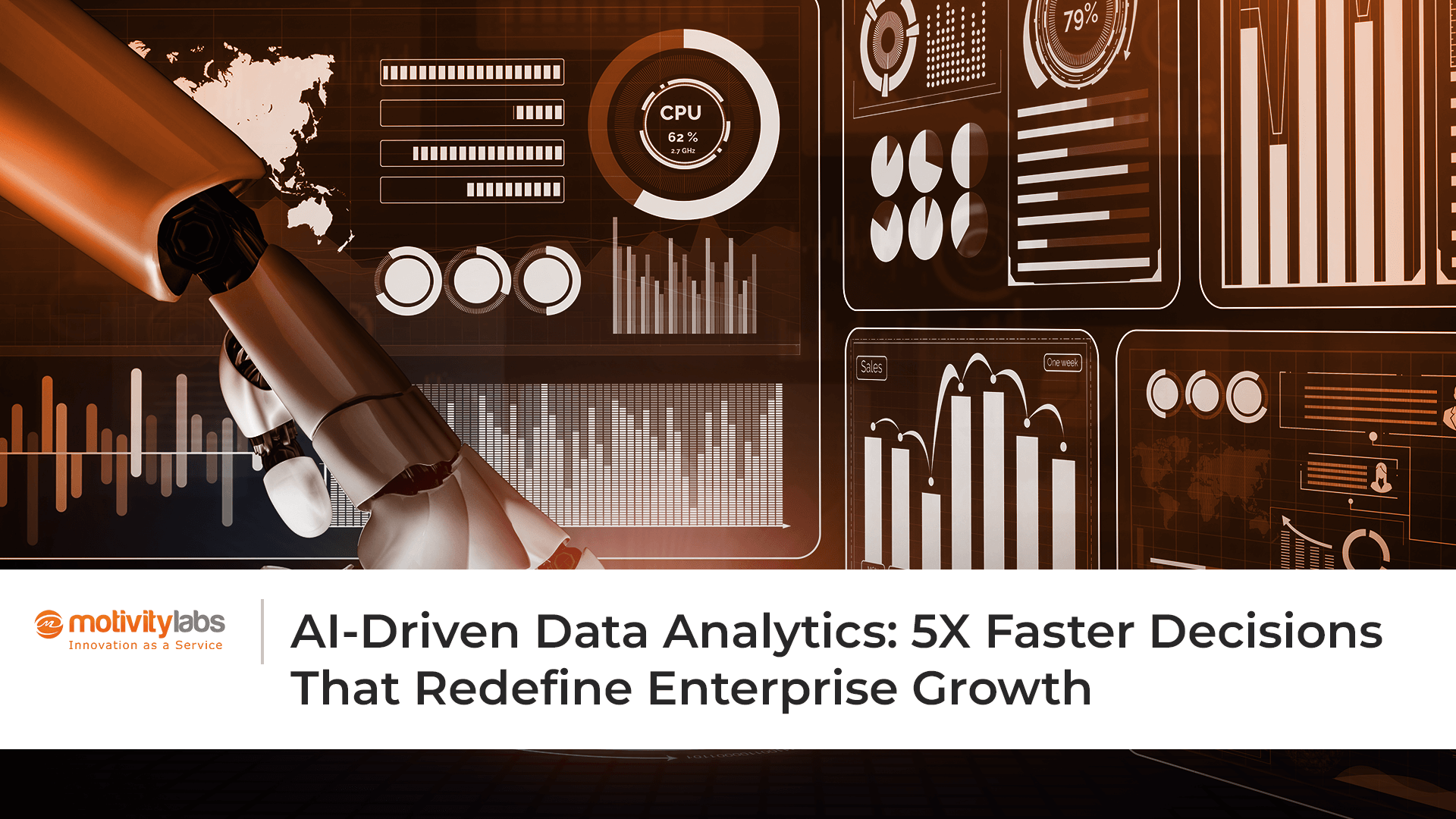Want to get an idea of Data Engineering Vs Data Science?? Read the blog to know more. An unprecedented rise in the amounts of data collected and shared over the century has shifted business strategies and perspectives around data as an asset. Forthcoming disruptive technologies and platform companies have shown how data has become the new currency for businesses worldwide.
With access to gigabytes of data, companies have the potential to constantly improve their products/services. They make insightful, personalized decisions that can change the scope of their users, businesses, and markets at large.

As companies understand the opportunity that Big Data presents, the job requirements around data administrators, engineering, and management have seen incredible growth. When Data Scientist was pronounced as the sexiest job of the 21st century by Harvard Business Review, it has seen a sudden upsurge in demand among industries and candidates.
Data Engineering and Data science jobs
While Data scientist jobs have gained a huge amount of attraction in the market, data engineering is the fastest-growing job in the entire technology market since 2019. Some reports state that the demand for data engineers is at least five times higher than that of job openings for data scientists in the market. Still, Data Engineering and Data science jobs have become equally the most sought-after and most promising with the highest career growth and trajectory.
However, most parts of the job description for these two fields are blurry and still immature with overlapping requirements as well as gaps in expectations. To decode the true value of each, it is important to understand the requirements, skill sets, data processes involved, and the core components of each process. Because Data Engineers and Data Scientists will be playing crucial roles at different points in doing certain imminent tasks in the processes.
The etymology of Science and Engineering can help in differentiating the roles of Data engineers and Data scientists. As the name suggests, Data Science is a broader multidisciplinary field. It is an umbrella term covering Mathematics, Computer Science, Programming, Information Science, and Business domain knowledge. along with analytical skills to solve real-time business problems. The focus of Data science is on understanding data and extracting meaningful patterns and insights by using scientific methods, techniques, and algorithms.

Data Engineering and Data Science
On the other hand, Data engineering is a subset of Data science. It covers the engineering processes of data, such as designing and building data pipelines. Which collects, pre-process, and transforms data into formats required for storage, or further analysis. The usable formats of data are routed to various streams in the data workflow, including that of the data scientists’ work, which requires clean data for analysis. Data Engineers are required to have skills in designing, building, testing, integrating, and optimizing the data. From multiple sources, the data has been collected and they can deal with different types of structured and unstructured data.

Particularly, data engineering is an important support system for data science to improve data accessibility and facilitate real-time analytics applications for businesses. In the words of David Bianco, “Data Engineers are the plumbers building a data pipeline, while data scientists are the painters and storytellers, giving meaning to an otherwise static entity.” Thus, both data engineering and data science are hand-in-glove entities for every organization.
Data Engineering and Data science jobs
Both Data Engineers and Data Scientists may have similar educational backgrounds and expertise in Computer Engineering, Mathematics, IT, and programming skills in languages such as Java, Scala, Python, R, C++, JavaScript, SQL, and Julia. Both are complementary roles with equally promising career trajectories and encouraging compensations offered by big and small companies alike. Some of the Big players recruiting for data scientist and data engineer profiles include Amazon, IBM, TCS, Infosys, Accenture, Capgemini, General Electric, Ernst & Young, Microsoft, Facebook, and Apple Inc.
Although both roles are in demand, it is very important to understand the profiles, expectations, and skillsets of each, to choose a career in these fields so that one can maximize one their strengths and enhance productivity. Here are the most important differences between Data Engineers and Data Scientists
Focus
The main focus of the role: While Data Engineers are involved in building the infrastructure and architecture for data generation, Data Scientists are mainly concerned with performing advanced statistical analysis on the collected data to yield insights.
Approach
Data Scientists are more client/business-centric in their approach to finding answers to crucial business questions such as optimizing business operations, reducing costs, improving customer experience, etc. Data Engineers, need to take a solution/data-centric approach as they need to know what type of data might be needed for the solution designed. And how the formatting can serve in finding fitting conclusions to the various business questions, such as segmentation, optimizations, pattern recognition, etc.
Skills
Data Scientists need Analytical skills, and story-telling skills apart from the machine learning, deep learning, regression, probability, and statistical skills mentioned earlier. Data engineers need logical skills, management and organizational skills, and technical skills in distributed systems, system architecture, database designs, configurations, and Extraction Transformation and Loading (ETL).

Tools
Data Scientists use statistical analytical tools in R, Python, SAS, SPSS, Java, and BI tools like Tableau, RapidMiner, PowerBI, KNIME, QlikView, and Splunk. They work with most ML libraries like TensorFlow, Keras, Python Spark, R spark, etc. They may be well versed with cloud computing and MS Azure, IBM Watson, or AWS analytical platforms. Data engineers work with distributed systems and Big Data frameworks such as Hadoop, Spark, etc. They should be able to work with SQL or No-SQL databases, and data pipeline tools like DataStage, IBM infosphere, Apache Kafka, etc. Both Data Scientists and Data Engineers need to understand SQL databases and No-SQL databases to work on both structured and unstructured data.
Tasks
Tasks of a Data scientist include data analyses, testing and inferring, presenting the analysis, and communicating insights to business owners. A Data engineer’s task in the company is to design big/data infrastructure, and prepare it to be further analyzed. They need to build pipelines that can arrange data in a programmed system to answer complex queries.
Teams
Data scientists work closely with data engineers for data, and business stakeholders to understand the business problem to work on the solution and communicate the analysis with the rest of the team. Data engineers need to work with cross-functional teams to collect, provide, and output data in the company.
Despite the differences in the functions of Data Scientists and Data Engineers, an overlap isn’t avoidable because of the nature of the interdependence of functionalities.

An engineer’s perspective of transforming data may likely be influenced by the business problem, which needs an analytical approach similar to that of a data scientist to understand models/techniques/training algorithms that the data needs to fit. At times, data scientists may choose to perform ETL of data by themselves, so that there is no gap in the aggregation methods and their modeling purposes.
Data science and engineering
In many cases, a data scientist and engineer need to be in alignment for taking a machine learning model into production. For example, both need to understand the same programming languages, production environments, databases, and integration methods to smoothly and successfully take a prototype model into the production stage.
It is difficult to have generalized requirements for Data science and engineering fields in an organization. Even though many companies are now preferring data-science-engineer roles, which integrate both tasks under a single owner, many corporations prefer to keep the specializations sovereign and loosely coupled with considerably transparent communication channels, since the tasks tend to fluctuate between the fields. With all possibilities considered, Data Engineering and Data Science are the most important and transformative fields that not only help organizations make informed decisions but also unleash innovations powered through data that is readily and easily accessible in the form of structured and unstructured information through the cloud and the internet of things. While data engineers have the potential to handle and manipulate this information to make sense, Data scientists can steer businesses into newer dimensions with the insights derived from sensible data.



